Posted by Horton Tatarian, research biochemist, on 30th Apr 2016
Magnesium, Health, and Disease
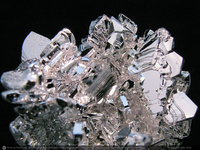
Magnesium and Health
Magnesium: A Chemical Element
The National Institutes of Health states the following in their fact sheet on magnesium for health professionals:
Magnesium, an abundant mineral in the body, is naturally present in many foods, added to other food products, available as a dietary supplement, and present in some medicines (such as antacids and laxatives).
However, as taught to high school students learning chemistry, Magnesium is a chemical element (an alkaline earth metal as pictured above), not a mineral.
Ignoring the difference between chemical elements and minerals is common in the medical industry but not tolerated in scientific circles. Minerals are composed of two or more different chemical elements. This simple fact opens the way to understand differences in safety and effectiveness between the sources of the chemical elements required for health.
Magnesium In Nature
In nature, magnesium is always combined with other chemical elements. Magnesium is a component of:
- Minerals in the earth's crust and in living things
- Other molecules within all forms of life
Soil minerals provide for plant nutrition, and plants are the foundation of human nutrition.
Magnesium oxide is oxidized magnesium (magnesium rust) just as iron oxide is oxidized iron (iron rust). Both of these naturally occurring minerals are irritating and potentially toxic to humans but serve well as plant fertilizers. (Nevertheless, low-cost dietary supplements for humans continue to supply magnesium as magnesium oxide.)
Since magnesium is the central and essential part of the green chlorophyll molecule, magnesium is vital to plant life; it is the foundation of plant metabolism and explains why dark green leafy vegetables are excellent dietary sources of magnesium.
Magnesium In The Body
The NIH fact sheet for health professionals states that magnesium is abundant in the body. Indeed, the body requires large amounts of magnesium to maintain health, but magnesium deficiency concerns many scientists.
Magnesium is a macroelement, an element that the body requires in large amounts. Macroelements include calcium, potassium, sodium, magnesium, phosphorus, chloride, and sulfur.
The requirement for magnesium is much higher than for microelements, which the body requires in small amounts. Microelements (trace elements) include chromium, cobalt, copper, iodine, iron, manganese, molybdenum, selenium, and zinc.
The body requires magnesium to utilize calcium, several microelements, and hundreds of enzymes for cell and body function.
[Magnesium] is extremely important for the metabolism of Ca, K, P, Zn, Cu, Fe, Na, Pb, Cd, HCl, acetylcholine, and nitric oxide (NO), for many enzymes, for the intracellular homeostasis and for activation of thiamine and therefore, for a very wide gamut of crucial body functions. Reference
The vital roles of magnesium appear under numerous scientific topics, including the following:
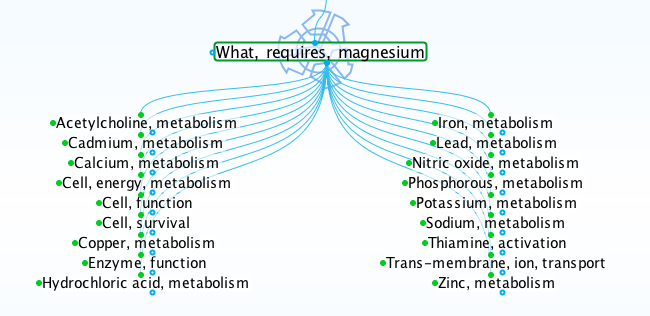
Life Sciences Database Screenshot, What requires magnesium, Lifesciences.care
In particular, notice the terms "cell function" and "cell survival". Magnesium deficiency impairs cell function and reduces cell survival, which is the basis for disease and premature death.
Magnesium Deficiency and Disease
Causes of Low Magnesium
Magnesium deficiency is one of many consequences of society's current use of commercial foods instead of plant-based, home-prepared meals.
Currently, nutritionists believe that the general population intakes insufficient magnesium daily through the diet. Reference
In addition to poor dietary choices and magnesium-depleted soil, the following factors promote deficiency.
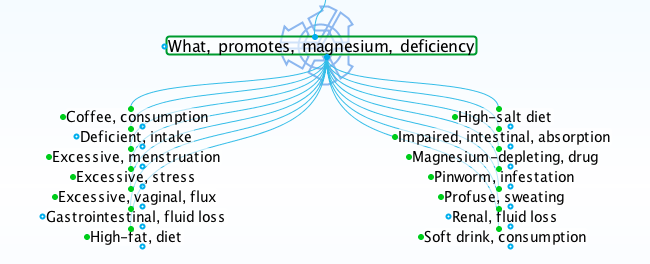
Life Sciences Database Screenshot, What promotes magnesium deficiency, Lifesciences.care
Most experts underestimate the magnitude of the problem of magnesium deficiency. In research, the use of incorrect forms and amounts of magnesium supplements have led to inaccurate findings.
Because there are so many variables involved in the Mg metabolism, evaluating the effect of Mg in many diseases has frustrated many researchers who have simply tried supplementation with Mg, without undertaking the task of ensuring its absorption and preventing excessive elimination, rendering the study of Mg deficiency much more difficult than for most other nutrients. Reference
Consequences of Magnesium Deficiency
Magnesium deficiency associates with dysfunctional metabolism, the cause of disease and consequent hospitalizations. The lack of adequate magnesium in body cells links to accelerated aging, diseases associated with aging, and other health disorders.

Life Sciences Database Screenshot, Magnesium deficiency associates with, Lifesciences.care
The next screenshot details most of the known metabolic dysfunctions of magnesium deficiency. Among those listed, excess chronic inflammation and oxidative stress are key factors involved in all acquired degenerative diseases. The following defects in cell metabolism create the health disorders linked to the lack of sufficient magnesium in the body.
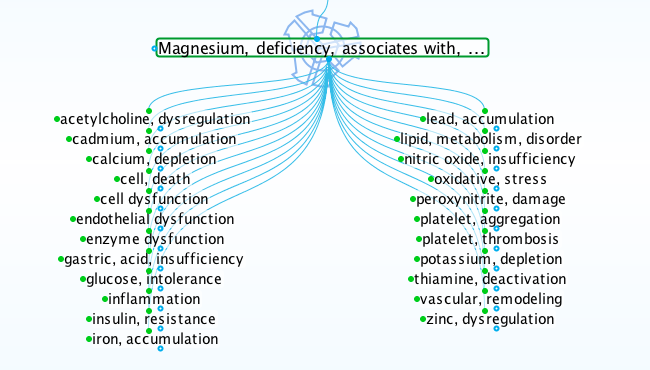
Life Sciences Database Screenshot, Magnesium deficiency associates with metabolic dysfunction, Lifesciences.care
Low Magnesium and Disease
The health disorders related to magnesium deficiency include Alzheimer disease, asthma, atherosclerosis, cancer, heart disease, kidney failure, diabetes, erectile dysfunction, fungal infection, hearing loss, hypertension, migraine headache, mental illness, osteoporosis, premature death, and other disorders as shown below:
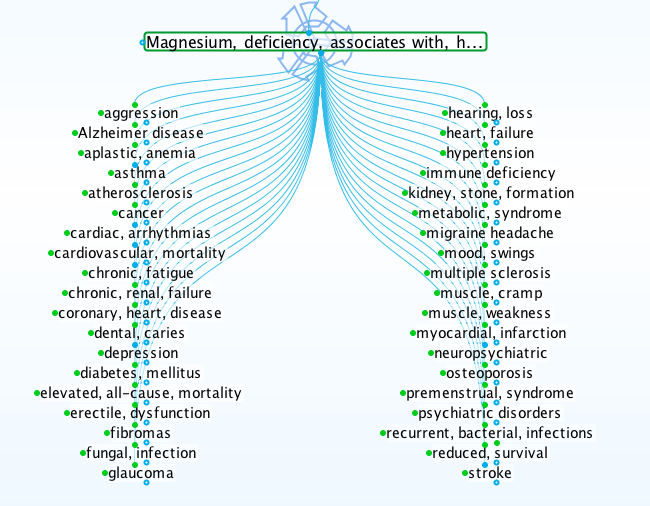
Life Sciences Database Screenshot, Magnesium deficiency associates with health disorders (partial list), Lifesciences.care
Magnesium deficiency contributes to many of the discomforts and diseases related to aging.
Mg deficit associated with aging may be at least one of the pathophysiological links that may help to explain the interactions between inflammation and oxidative stress with the aging process and many age-related diseases. Reference
The following list of diseases related to aging and magnesium deficiency also have two key metabolic dysfunctions in common: excessive oxidative stress and inflammation. Excessive oxidative stress and inflammation are also features of the preceding list of diseases linked to magnesium deficiency.
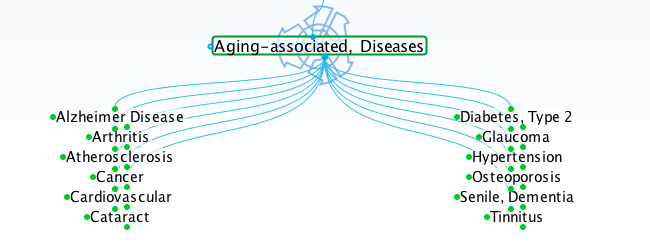
Life Sciences Database Screenshot, Aging-associated Diseases, Lifesciences.care
Medical lab tests of magnesium levels in the blood may show normal magnesium levels while magnesium within the cells is deficient.
Many of the patients admitted to hospitals or medical care facilities are unaware of their low magnesium levels. Moreover, because magnesium is predominantly an intracellular cation (>99%), serum magnesium levels remain a poor predictor of tissue magnesium content and availability. Reference
The effects of magnesium deficiency are, for the most part undetected, and simple, widespread assessments of magnesium intake remain unavailable for humans. Reference
Assuring Magnesium Sufficiency
Magnesium Supplementation
Conventional healthcare accepts magnesium supplementation in pre-eclampsia and eclampsia, disorders of pregnancy. Numerous research findings on supplementation demonstrate magnesium's role in maintaining health and reversing additional conditions associated with magnesium deficiency. For example:
Oral Mg supplementation improves insulin sensitivity even in normomagnesemic, overweight, non-diabetic subjects emphasizing the need for an early optimization of Mg status to prevent insulin resistance and subsequently type 2 diabetes. Reference
Mg therapy is essential and specific for [idiopathic mitral valve prolapse]. Reference
Safe and effective magnesium minerals for supplementation include:
- Magnesium glycinate
- Magnesium citrate (also promotes bowel movements)
- Magnesium malate (best for supporting energy levels)
Product Related Category
A Magnesium-Rich Diet
In addition to dark green leafy vegetables, good magnesium sources include nuts, seeds, beans, lentils, peanuts and peanut butter, quinoa, sprouted grains and seeds, avocado, bananas, dried fruit, raw milk products, wild Alaskan salmon, and sardines.
Diet Related Articles
About Horton Tatarian

I’m a biochemist who examines scientific findings on health and disease. My degree in biochemistry is from U.C. Berkeley. UCLA School of Medicine granted an M.D. degree in 1974. Since then, independent research prepared me to advise clients on natural ways of self-care.

